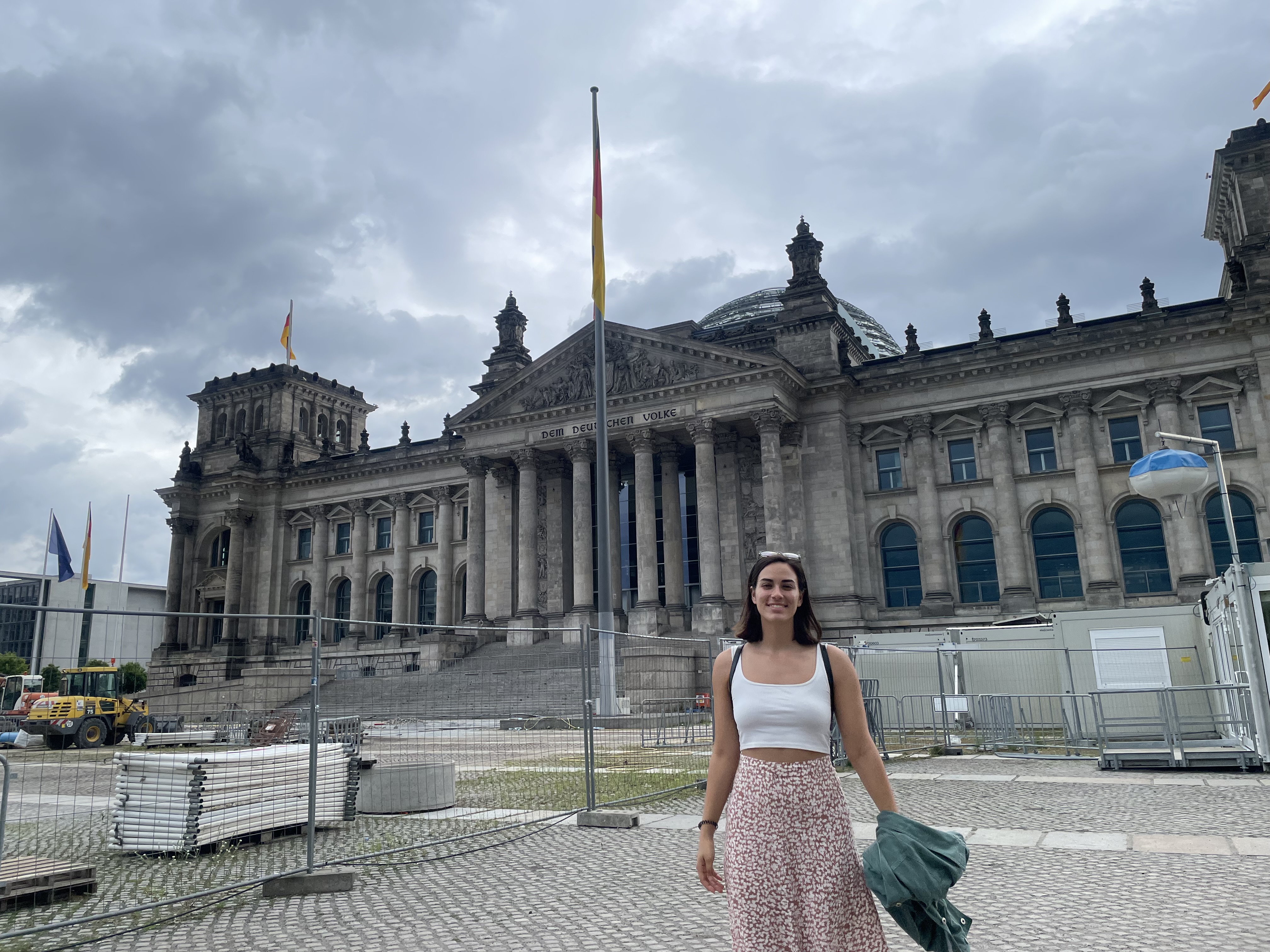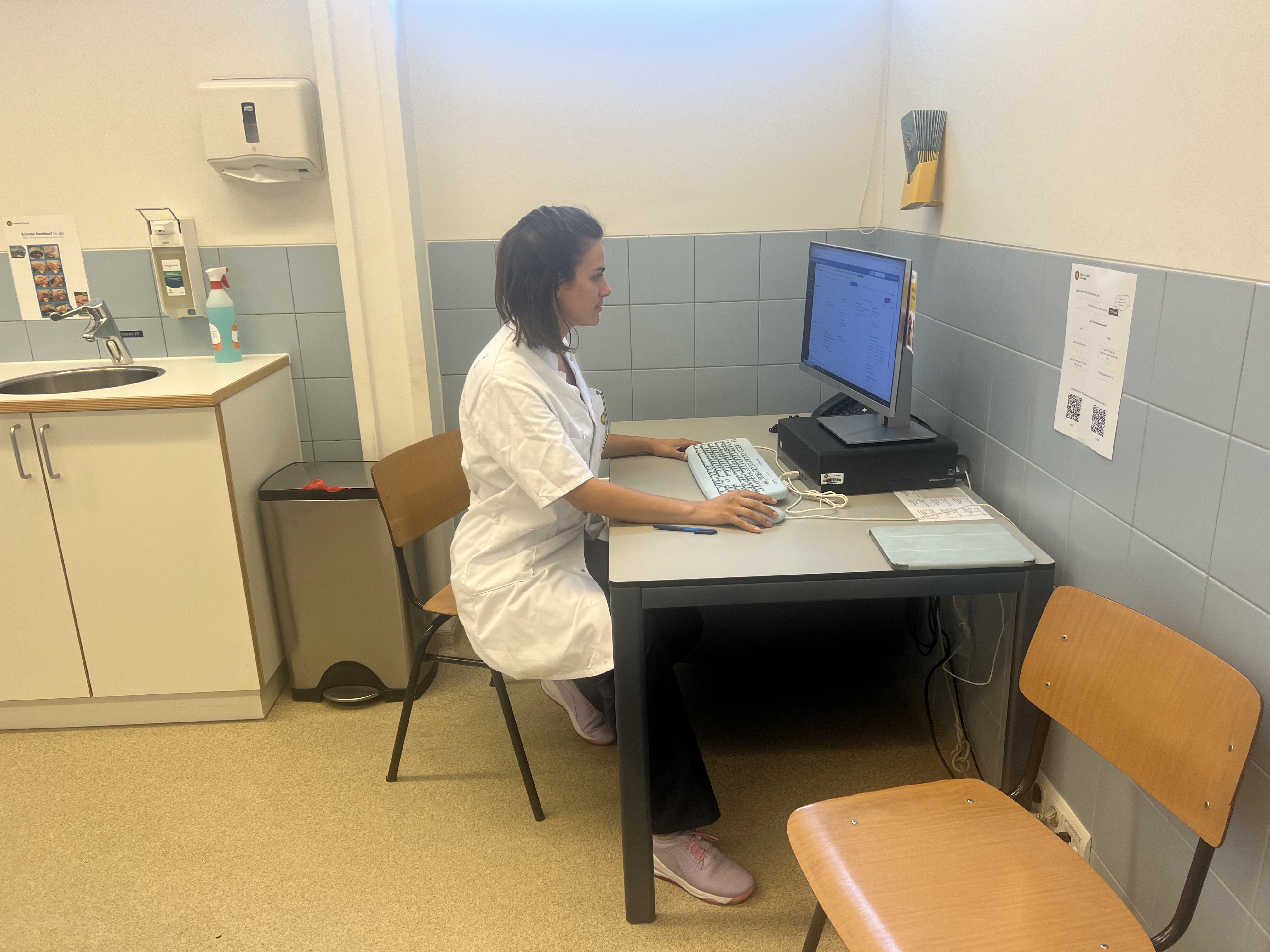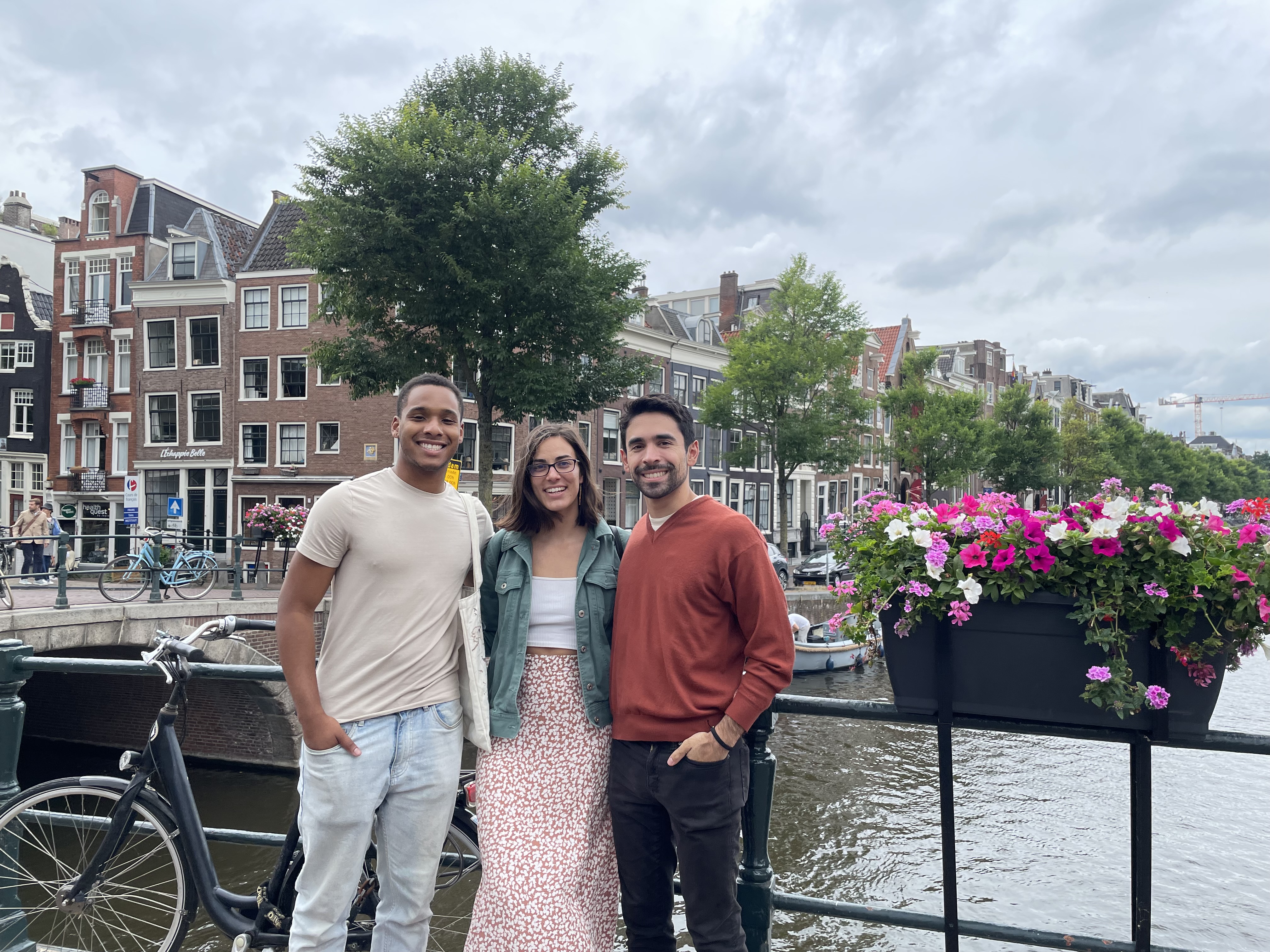Maggee Gardea
I began my externship by rotating through the intensive care unit. Here I had the opportunity to spend several days working alongside the technicians where I could sharpen my clinical skills by tending to the critical patients staying in the hospital. The rest of the days on this rotation I took on my own patient and worked with the veterinarians to formulate a differential, diagnostic, and treatment plan. I had an extensive patient that was diagnosed with leptospirosis and learned so much from running daily bloodwork in order to monitor kidney and liver function. It is also an important zoonotic disease so working with the staff and client in regards to client communication was a great challenge.
After the intensive care unit I rotated through their outpatient department which included endocrinology and small animal reproduction. I was very excited to rotate through the reproduction service in particular because of the vastly different approach Europe has compared to the States. On the reproduction service I learned how to track hormone levels and how you can use them to determine when a patient is close to ovulating. I also reinforced the concepts of vaginal cytology and vaginoscopy in order to determine what phase of the cycle my patient was in.
There were many differences in how The Netherlands approaches reaching a diagnostic plan as compared to how I learned at Davis. Instead of following the DAMNITV scheme they elect for categorizing into the most basic categories pertaining to the problem list and narrowing down from there. It was a refreshing experience to see how you can think about the same problem in a different way.


One of the more challenging aspects of this externship was not the difference in medicine that I appreciated but rather the client communication. Of course, at times there was a language barrier, making it difficult to communicate or understand what was going on. I developed a deep appreciation for the role veterinarians play in their community because of this in seeing how we impact the many people we interact with on a daily basis.
After my rotation completed, my travel companions Bryce, Daniel, and I traveled to Italy, Germany, and Greece. It was incredibly humbling to witness the differences in other people’s way of life down to their mode of transportation, greeting customs, food, and nightlife. I have a newfound passion for wine after visiting Florence and learning about how to properly drink and pair your wine. And Greece had the most beautiful beaches where you could see to the bottom of the ocean floor no matter how deep you went. Overall, I am incredibly grateful for the opportunity I had to experience new culture, in both the vet med world and the local communities.

